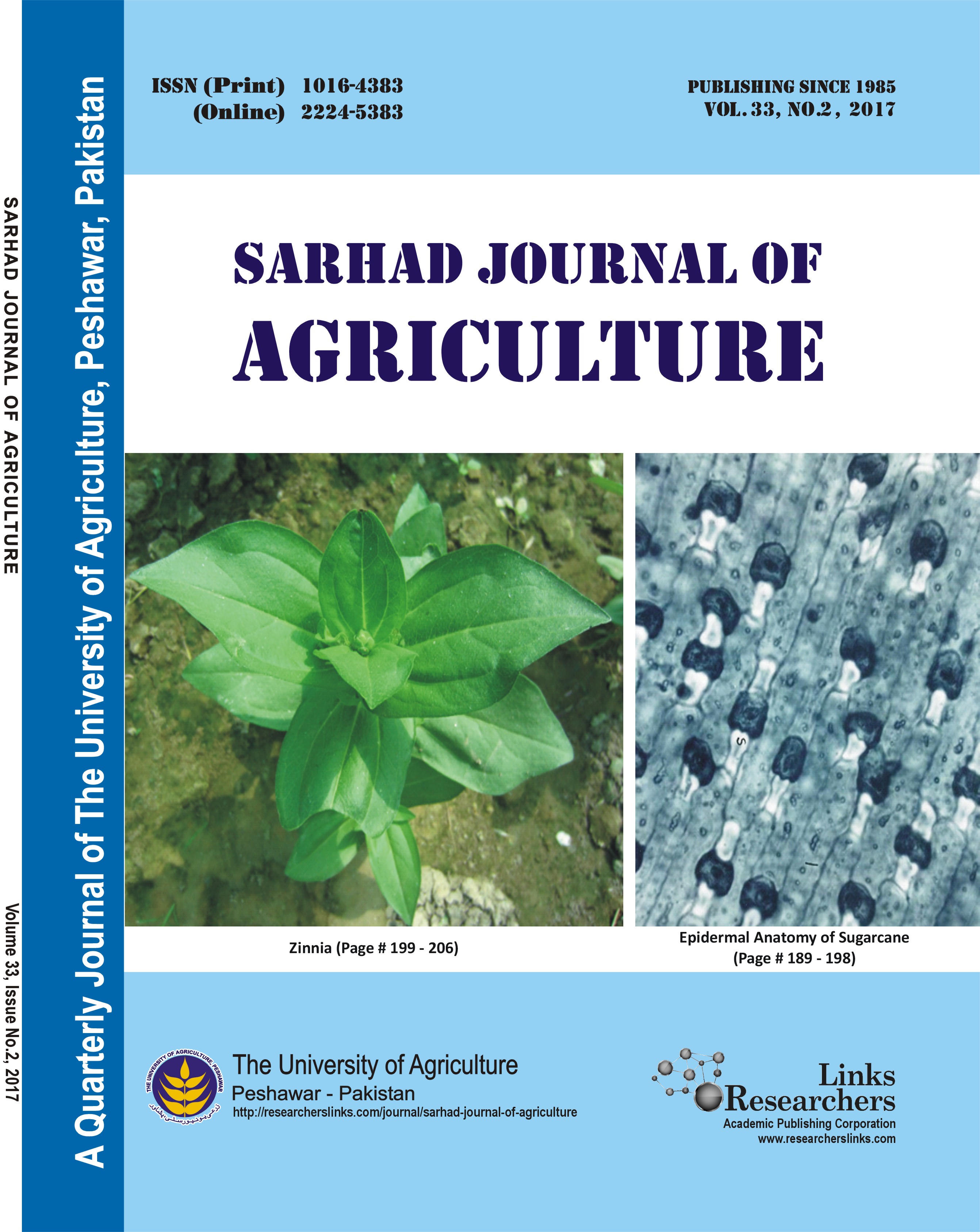Determinants of Technical Efficiency of Tomato Farms in District Peshawar, Khyber Pakhtunkhwa
Determinants of Technical Efficiency of Tomato Farms in District Peshawar, Khyber Pakhtunkhwa
Shahid Ali1*, Asim Khan1, Aftab Khan1 and Bakhtawar Riaz2
ABSTRACT
This study was directed in district Peshawar, Khyber Pakhtunkhwa, Pakistan. This study evaluated technical efficiency of tomato farms and to catch factors if any causing technical inefficiency in tomato production. 90 farmers were selected through multi-stage proportional allocation sampling techniques. Data was collected by using a well-structured interview schedule. Cobb-Douglas production function was employed to assess technical efficiency. Maximum likelihood estimation techniques were employed for estimation. Results showed that all explanatory variables except pesticides have significant effect on tomato production. The results showed that a 1% increase in seed rate, labor, tractor hours, urea, DAP and irrigation increases output by 0.81, 0.02, 0.28, 0.14, 0.25 and 0.02 percent, respectively. Mean technical efficiency score was found 95% ranges from 86% to 99%. This means an average farmer can increase tomato output by 4% with available resources and technology. Results of inefficiency effect model indicated that farmers’ experience has negative and significant relationship with technical inefficiency. Efforts should be made to keep experience farmers in tomato farming. Government also needs to allocate more funds for extension services to provide formal and informal education to tomato growers.
To share on other social networks, click on any share button. What are these?







